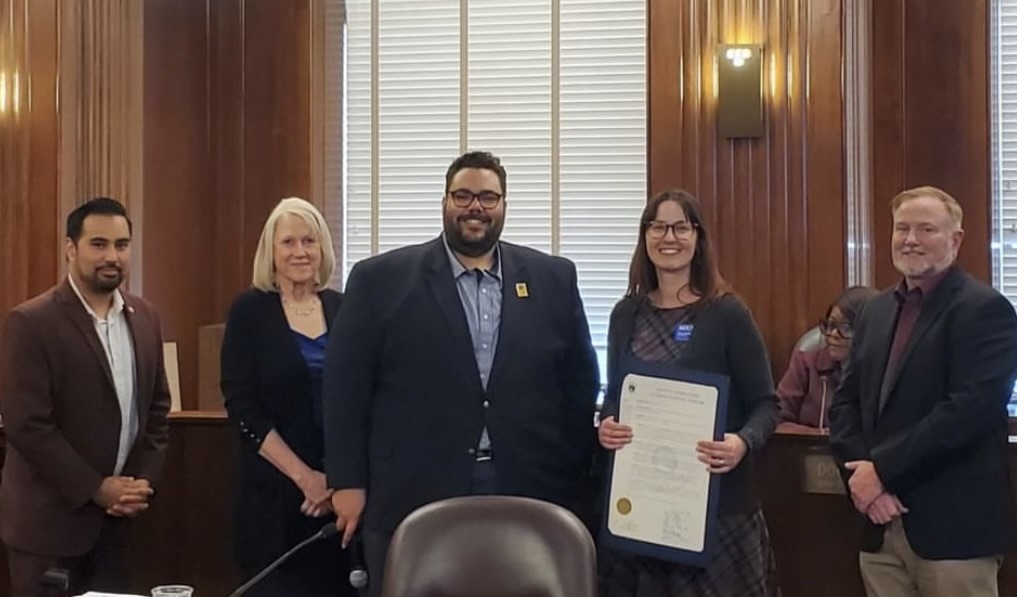Please join us in saying farewell to Victoria Pickering, whose last day as Director of Advocacy was November 15. We thank her for over eight years of service to MOCSA and our community and wish her the very best of luck in her new position at End Violence Against Women International!
What’s it like to think back on the last 8 years?
It’s surreal. I couldn’t imagine when I first started at MOCSA what this journey would have had in store for me. I really just wanted to focus on being an advocate and working with the survivors. I didn’t picture myself in a leadership role and so the whole experience has really been a little overwhelming to be honest.
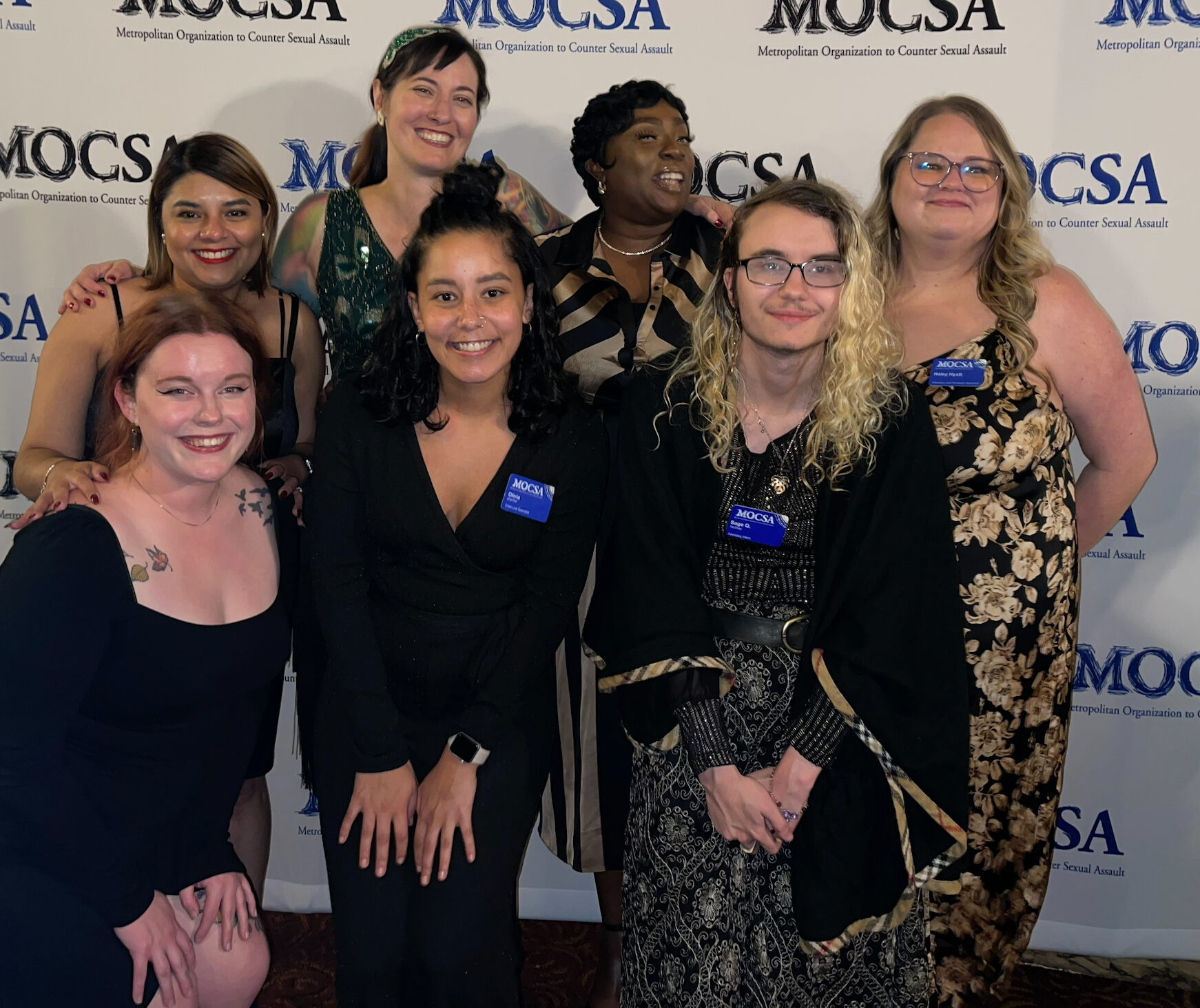
What’s a favorite memory of your time at MOCSA?
I really loved all of our crisis line meetings, especially before COVID when everyone was in person, and we were all crammed into the conference room and on the window ledge. I love the combination of people talking about successes with clients and then the educators jumping in and telling funny stories from being at elementary schools. It was such a feeling of comradery, and I will really treasure those.
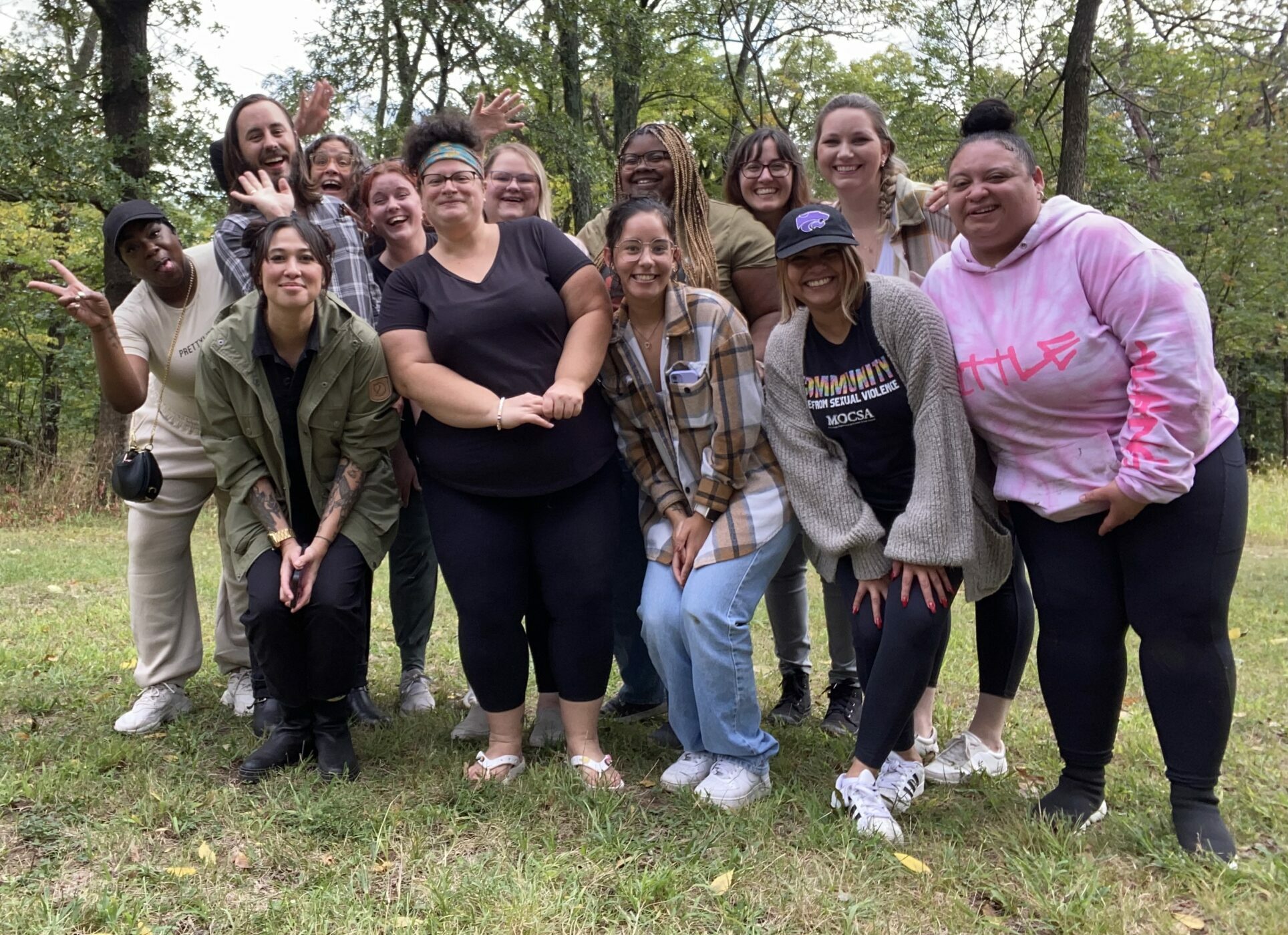
What are you most proud of?
The thing I’m most proud of is having been able to see a lot of younger people, who are newer in the profession, grow and develop into the advocates that they are today. I really appreciated having the opportunity to coach staff and volunteers and help them determine what they want to do and how they want to use their voices. We’ve had so many folks on our team who started as volunteers or interns like I did and are now supervising volunteers or interns and it’s just been really neat to see that growth.
Also, I’m so proud of the work we’ve done in legislative advocacy and policy work and being able to walk in the front door of MOCSA and have two pieces of legislation framed on the walls that we had a direct hand in getting passed. I remember the first client I had who was trying to get out of their lease after they were sexually assaulted in their home, and I got a voicemail from a very angry landlord who was adamant that the survivor would have to pay multiple months of rent payments to break their lease. Now if that happens all we have to do is send the language of the statute and say, ‘Actually there’s a law in place in Kansas and a law in place in Missouri and an ordinance in place in Kansas City that says you have to do this.’
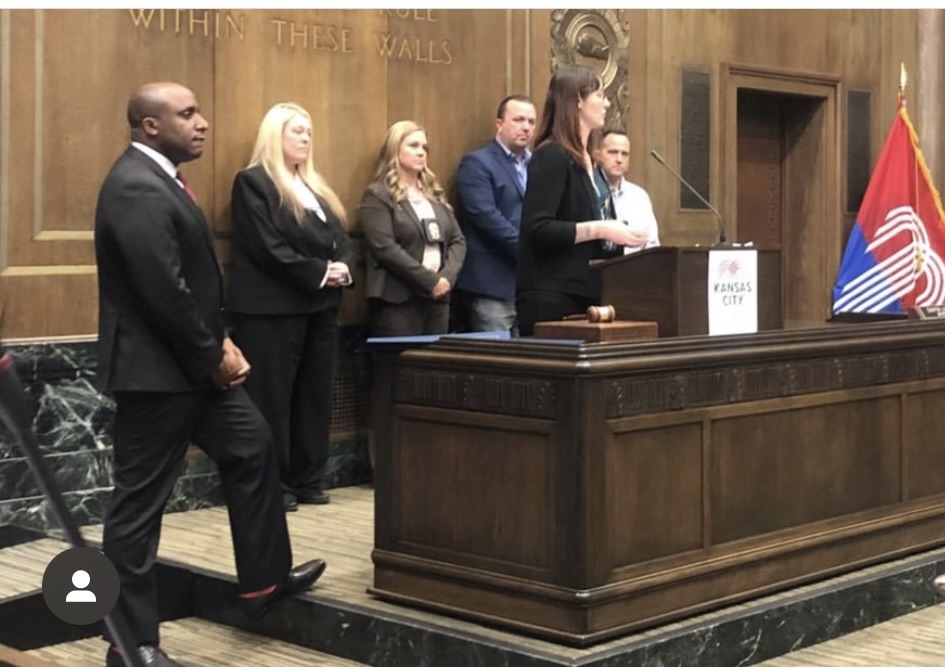
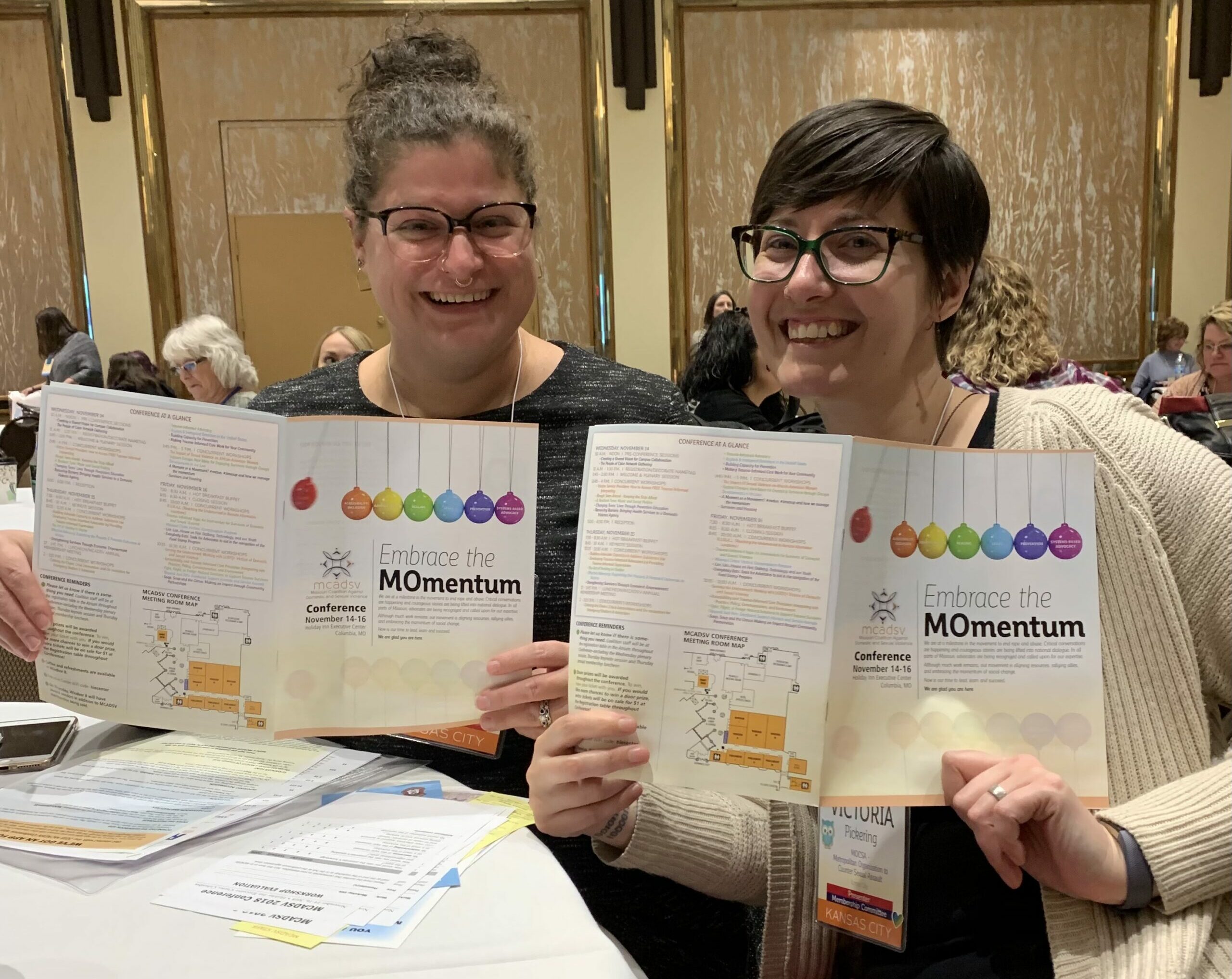
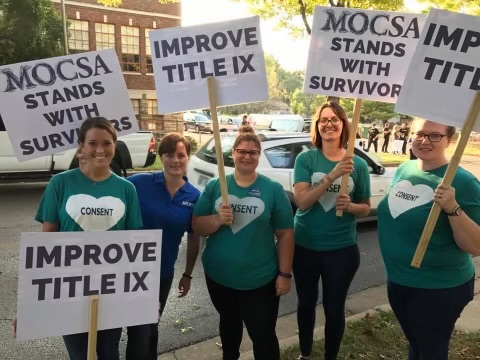
What will you miss?
I’m really going to miss working with clients. I’m going to miss being on the crisis line and hearing the difference in someone’s voice when we first answer the phone and they’re uncertain or unsure if they can trust us, and then later hearing the change in their tone of voice. Hearing them breathe more easily and often express hope for what’s to come for the future.
What won’t you miss?
I won’t miss worrying about crisis line coverage and having to scramble if we have a day where we get more hospital activations than we have people available to answer the phone. It’s been challenging to sometimes have other important projects that I need to focus on and knowing that all of that has to be set aside to make sure that we have that first response available.
What’s something most people don’t understand about advocacy?
Something that is maybe most misunderstood about advocacy is that there is no specific way to do it. There’s no correct path and every situation is so different. You can have two clients who have very similar experiences, and their reactions can be very different, their support structures can look very different, their experience with systems can be very different. As advocates we have to be constantly responding in the moment and every decision and next step we take is always going to be dependent on that person. It is a really unpredictable job and that’s one of the things I love about advocacy. No day looks the same as the day before.
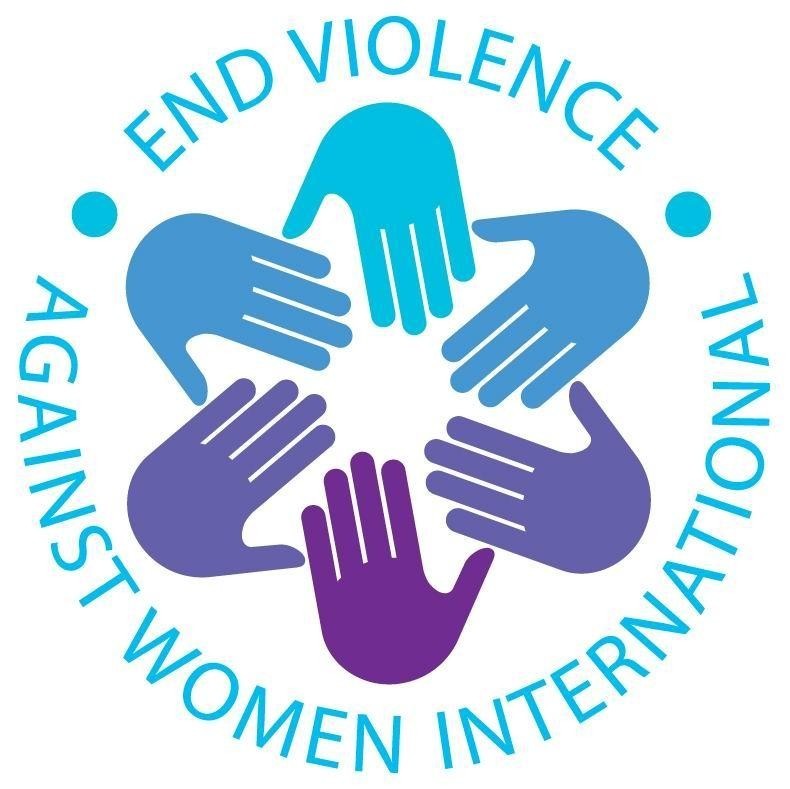
Tell us about the opportunity at EVAWI.
I’m going to work at End Violence Against Women International (EVAWI) to be their Seek Then Speak Coordinator. I will be working with the team at EVAWI to expand and enhance the “Seek Then Speak” program which is an alternate reporting platform. It’s a tool that we’ve implemented as a pilot site here in Kansas City, and it provides additional options for survivors who are choosing to engage with the criminal justice process, and it allows them to retain a little bit more control during that experience.
What are you most excited about in your new role?
I’m excited to work with a lot of different types of communities. I’m so familiar with all of the different jurisdictions and counties that we work with throughout the Metro, but with this new job I’ll be interacting with folks from all over the country in small towns and large cities and potentially some statewide projects, and that’s a new challenge for me. I’m also excited for the opportunity to potentially work with some rural communities. I think the tool has the capacity to really enhance the criminal justice response to survivors, especially in small towns that might not have the level of resources that we have here in Kansas City.


